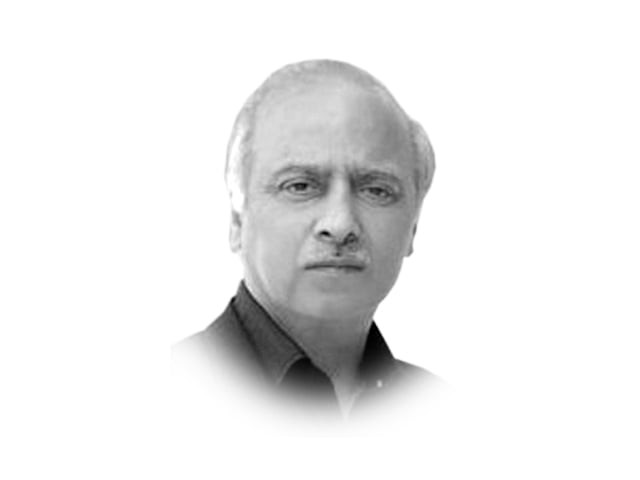Illegal structures: paradox of rule of law
Most officials duck under the ruse of mosques, madrassas being a sensitive issue to enforce laws, such as Lal Masjid.

Consider the presence of as many as 83 illegally constructed mosques and seminaries in Islamabad alone. This is the result of a combination of political expedience, poor law enforcement by the police and the city administration, as well as the wilful use of public spaces by politically affiliated religious groups, which occupy the land and construct illegally without permission from the city administration. The pattern is more or less the same all over Pakistan.
This also reminds us of the Lal Masjid crisis in 2007, which was largely rooted in the government’s campaign against illegal constructions of religious structures. The campaign triggered a massive reaction, which resulted in the Lal Masjid violence. The government eventually backed off and the issue effectively went into hibernation.
The ministry of interior provides mosques and seminaries in Islamabad — including the illegal ones — with walk-through gates, along with at least two police officials for security. An official of the ministry said that as many as 50 mosques, including shrines, have been provided with walk-through gates because officials say this is part of their primary responsibility.
Moreover, the police, according to officials, are not supposed to check whether these mosques or seminaries were constructed with the permission of the Islamabad Capital Territory. The Capital Development Authority (CDA) says it is “difficult for them to keep a check on mosques as this was a sensitive issue. A number of mosque administrators — who usually represent the Jamiat Ulema-i-Islam — have gone on to claim official lands to extend their facilities or put up new structures.
Where is the law and what about the strict regulations that the CDA invokes to penalise residents of Islamabad for alterations or additions to their homes?
Most officials duck under the ruse of mosques and madrassas being a sensitive issue, an attitude that stems from the past, when people like Maulana Abdul Aziz or his brother Abdur Rashid Ghazi (of the Lal Masjid) were important pawns in the games that the security establishment played in and outside the country.
Official sanctions for such persons or the institutions they run — regardless of their legal status — basically contravene the rule of law and this flies in the face of claims to good governance. This paradox stretches beyond the capital itself and is more pronounced in southern Punjab, Karachi, Khyber-Pakhtunkhwa or Fata, where clerics associated with mainstream religio-political parties appropriate barren or state lands to raise structures for mosques or madrassas.
The madrassa reform also fell victim to this paradox within the power structures, which have used appeasement of non-state actors as a tool to preserve the so-called ‘first-line-of defence’. The concept has turned out to not only be ‘broke’ but also disastrous. This has become a huge internal security challenge for the country and it certainly needs to be addressed by taking some of the following measures: a) regularise all illegal structures built in the name of religion b) reject and ban unauthorised construction in the name of mosques or madrassas c) prohibit individual sermons (by certain religio-political groups) at mosques to prevent sectarian divide. Even mosques in Islamabad tend to spread hate against certain beliefs due to the unmonitored speeches of these clerics and d) register madrassas and subject them to national curricula through parliamentary legislation.
Pakistan has plenty to learn from other Muslim countries such as Saudi Arabia, Kuwait, Jordan and Iran, where the state controls religious learning and its dissemination to prevent sectarian disharmony within the society.
Taking down illegal structures might be painful, but the state should launch a process that regularises these mosques and madrassas and delegitimises all unauthorised actions. This constitutes the foundation of the rule of law that we all must uphold.
Published in The Express Tribune, December 15th, 2011.















COMMENTS
Comments are moderated and generally will be posted if they are on-topic and not abusive.
For more information, please see our Comments FAQ